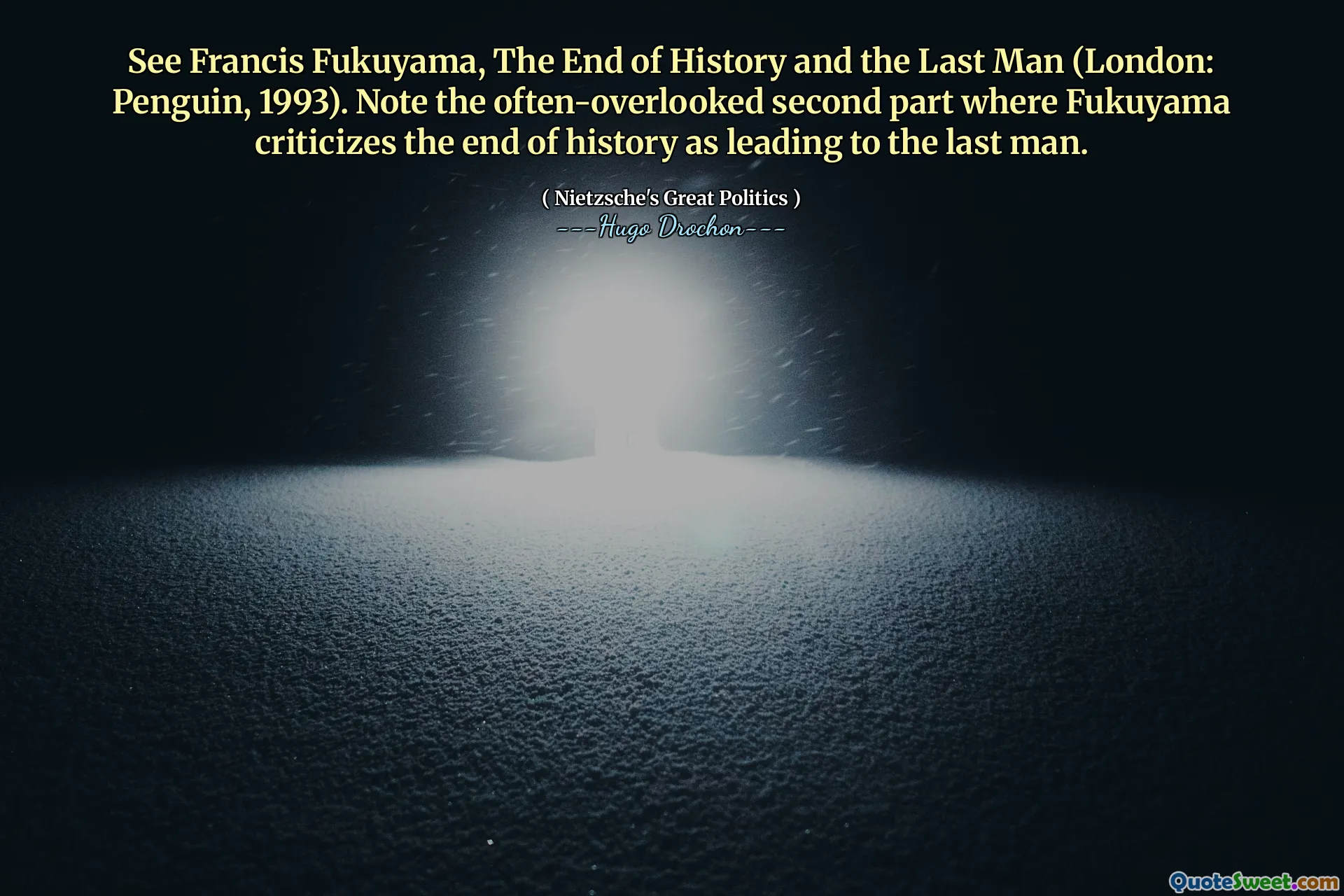
See Francis Fukuyama, The End of History and the Last Man (London: Penguin, 1993). Note the often-overlooked second part where Fukuyama criticizes the end of history as leading to the last man.
Fukuyama's thesis presented in the book 'The End of History and the Last Man' has been a profound influence in both political science and philosophy. His argument that liberal democracy represents the culmination of ideological evolution suggests a convergence point for political development. However, his subsequent critique—that this end state might lead to a society characterized by complacency, materialism, and a lack of higher aspirations—resonates deeply when considering contemporary social dynamics. This notion of the 'last man' evokes a figure content with comfort and security, but potentially devoid of purpose or revolutionary drive. In today’s context, we witness a paradox: despite unprecedented technological advancement and democratization, many individuals seem increasingly disenchanted and detached from collective aspirations. Fukuyama's cautionary note urges us to reflect on whether the end of political evolution could herald spiritual stagnation or superficial fulfillment, reducing human experience to consumerism and banal stability. The tension between progress and fulfillment remains pressing, prompting questions about whether societies can sustain meaning beyond economic well-being. His critique invites a broader philosophical conversation about the purpose of history and progress—whether they are linear, cyclical, or subject to unforeseen disruptions. This nuanced perspective helps illuminate the complexities of modern political and social life, reminding us that even in seemingly victorious moments for liberal democracy, underlying challenges persist that could threaten its long-term vitality.






